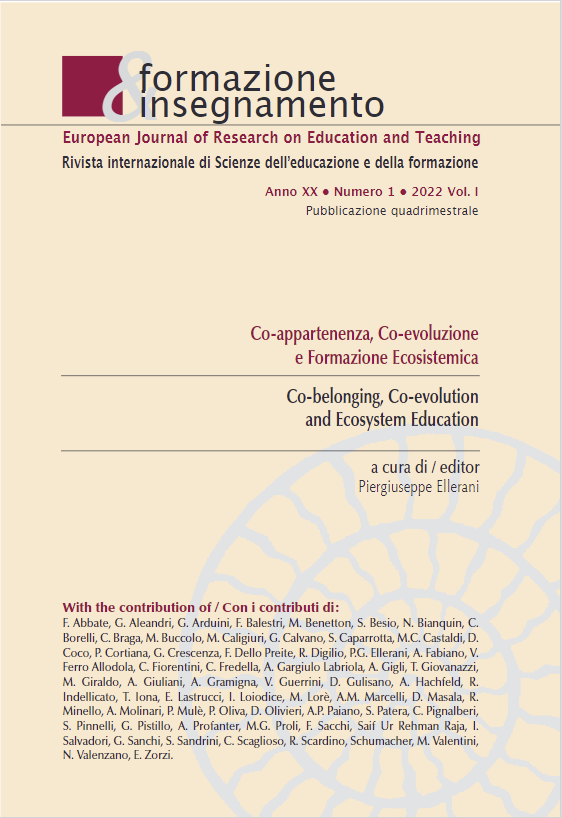Energy Transition through Educational Models Inspired by Plant Organisms
DOI:
https://doi.org/10.7346/-fei-XX-01-22_21Keywords:
Plant organism, Energy transition, Sustainable development, Education, AgencyAbstract
Climate changes are the side effects of anthropogenic activities over the past two centuries. Which are the activities that it could be taken into account to create a sustainable development model, meeting the present needs without compromising the future generation growths? Current modern societies are involved to carry out activities as ecological transition in order to decrease the greenhouse gas emissions released by energetic processes that use limited planet’s resources, fossil fuels. Waiting for this slow transition, it is also necessary to address environmental issues in the world of education, an awareness that should be received by the institution first, acquired by teachers and then lived by students. Finally, in order to deal with this radical transformation, it would be useful to recognize the main role of plants as oxygen producers, at the base of food chains, organisms able to capture carbon dioxide released by anthropogenic activities (energetic processes) new models based on plant organisms because essentials to maintain the fragile equilibrium of natural ecosystems.
Downloads
Published
How to Cite
Issue
Section
License
Copyright (c) 2022 Stefania Caparrotta

This work is licensed under a Creative Commons Attribution 4.0 International License.
Formazione & insegnamento is distributed under Attribution 4.0 International (CC BY 4.0).
For further details, please refer to our Repository & Archiving Policy, as well as our Copyright & Licensing Terms.





